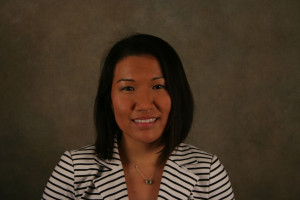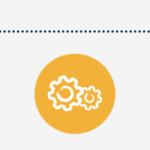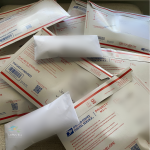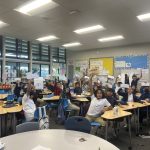We’re excited to spotlight another of our long-time LPS pen pals, Thuy Nguyen! She is a graduate student in epidemiology at The University of Iowa.
Tell us about yourself!
I live in Iowa City, IA where I attend The University of Iowa College of Public Health for a PhD in Epidemiology. I am interested in emerging and re-emerging infectious disease, teaching, social determinants of health, and information dissemination. But I have lots of other interests like public health and health literacy. I work for an osteoporosis study as a data manager and as a transcriptionist at the VA too.
What is epidemiology?
Epidemiology is the study of diseases in populations like schools, neighborhoods, counties, states or different countries—almost any community! We look at things like who is being affected by a disease, when are people getting sick and where it is occurring.
Epidemiology looks at all sorts of diseases like infectious diseases but also diseases that are slow to develop like cancer or diabetes. We call these diseases ‘chronic’ because after someone gets it, it might take a long time to cure or sometimes they can be lifelong. Besides diseases, we look at other things like injuries, car accidents and access to healthy food, hospitals and clean water. Epidemiology is about studying any health problem to help the public.
Every day is a little different for me. Most days I go to work on a research study on bone health. The study I work on is almost done and I am helping put together a dataset that any researcher can use to answer research questions related to osteoporosis. Other days, I might be at the Veteran’s Administration (VA), which is a special hospital system for people who have served in the U.S. military called veterans. In the VA, I transcribe interviews on different studies or I help with the statistical analysis of something called a tele-ICU, which is where clinicians like doctors and nurses are able to provide care to patients in a hospital Intensive Care Unit using electronic communication like video.
When I’m not working, I am preparing for or teaching a class that shows Master’s students how to read and analyze scientific journal articles. These are articles that help us to understand diseases and other health information. I find articles that I think are interesting, create discussion questions and guide students in figuring out what the study results say, if the study is good and if we can believe the results.
When I’m not doing that, I am working on a dissertation project, which is like a book on the research that I am interested in doing. While I like working on bone health and the tele-ICU, I am excited about learning about infectious diseases like the flu, Zika, measles, and Ebola. Right now, I’m trying to design my own research study to look at HIV in the state of Iowa.
For my study, I want to see why some people might not go back to the doctor on time to get medicine for their illness and how this affects their health. I also want to see how we can help get more people screened for HIV more often because the earlier people learn that they are sick, the sooner they can get medical care and medicine.
What is one skill that you learned in middle school/high school science that applies to your career in research today?
The most important thing I learned in middle and high school that helps me now is The Scientific Method. It is how people in epidemiology answer questions to different health problems. We think of ways we can create an experiment to answer a question we don’t know the answer to. I use The Scientific Method almost every day as part of my job.
When we think of a question, we look to see if anyone has already found the answer. If not, we create a hypothesis, or an educated guess on what we think will happen, and then design a study to test it. After we run the experiment, we analyze the data and see if our hypothesis is right or not. Sometimes the answer is not clear so we might design more studies to make sure we get the same results. Science is actually a lot of trial and error. When we try different things and share our knowledge, it helps all scientists figure out important details about health and disease.
You can find Thuy on Twitter, LinkedIn, and ResearchGate.






